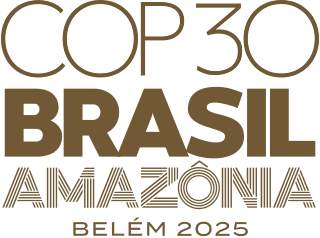COP 30 2025: UNFCCC Climate Summit in Belem, Brazil
Nov, 2025
•8 min read
Why in the News?

The UNFCCC 30th Conference of Parties (COP30) is scheduled to take place between November 10 and 21, 2025, in Belém, Brazil. The annual climate summit will take place as global climate concerns intensify, the 1.5°C target drifts out of reach, and confidence in multilateral climate mechanisms weakens.
About the UNFCCC Conference of the Parties (COP)
The Conference of the Parties (COP) is the supreme decision-making body of the United Nations Framework Convention on Climate Change (UNFCCC). It brings together all Parties (member countries) to review progress, negotiate commitments, and make decisions to combat climate change.
The UNFCCC was adopted at the Earth Summit, Rio de Janeiro (1992) and entered into force in 1994.
- The first COP was held in Berlin, Germany (1995).
- Currently, 198 Parties (including the EU) are members, making it nearly universal participation.
- The main objective of the convention is to stabilise greenhouse gas (GHG) concentrations in the atmosphere at a level that prevents dangerous anthropogenic interference with the climate system.
Key Functions of the COPs
- Reviews the implementation of the UNFCCC and related agreements.
- Assesses global progress toward climate goals.
- Adopts decisions, rules, and mechanisms for effective implementation.
- Facilitates negotiations on new targets and updates to NDCs.
- Mobilises climate finance, technology transfer, and capacity building.
- Oversees the work of subsidiary bodies.
- Promotes participation of all stakeholders and sets future action agendas.
Most Important UNFCCC COPs
Over the years, the Conference of the Parties has evolved from setting emission reduction targets to driving global cooperation on climate action, finance, and technology. Here are the key conferences and their outcomes relevant for the UPSC syllabus.
COP 30 as a ‘Summit of Solutions’
The 30th Conference of Parties (COP30) under the UNFCCC is being positioned as a “COP of Action”. COP30 focuses on implementation, financing, and equitable transition, translating climate commitments into real-world impact.
- The Brazilian Presidency envisions COP30 as a turning point, emphasising delivery over declarations.
- The summit aims to strengthen mechanisms that ensure the timely flow of finance, technology, and capacity-building to developing nations.
- There will be a regional focus with the gateway to the Amazon, which symbolises a commitment to forest-based climate action
- COP30 will spotlight a “just transition”, ensuring that climate action supports employment, energy access, and equity.
- Parallelly, there will be emphasis on strengthening voluntary carbon markets and promoting green industrialisation.
Also read about the BRICS 17th Summit 2025 in Brazil
Key Climate Initiatives at COP30
The following are the major initiatives and agenda points shaping discussions at COP30, important for UPSC GS-3 (Environment) and International Relations.
1. Tropical Forests Forever Facility (TFFF)
- Proposed by Brazil at COP28 (Dubai, 2023).
- The objective is to create a permanent, self-sustaining global fund that monetises the ecological value of tropical forests, ensuring “standing forests are worth more than felled ones.”
- It strengthens South–South climate cooperation and equity in global finance.
- India joined as an Observer, signalling support for innovative, nature-linked finance.
- Partners are Brazil, Colombia, Ghana, Indonesia, Malaysia, DRC, with support from Germany, France, the UAE, Norway, and the UK.
- Fund size is estimated at USD 125 billion, with payouts for forest conservation expected to begin by 2026.
2. New Collective Quantified Goal (NCQG)
- Builds on the outcome of COP29 (Baku, 2024), where Parties agreed to scale up climate finance.
- Mobilise at least USD 1.3 trillion annually by 2035 from public and private sources for developing countries.
- The focus is on predictable, transparent, and accessible finance for developing countries.
- It represents a move toward a large-scale finance architecture aligned with Paris Agreement implementation.
3. Updated Nationally Determined Contributions (NDCs)
- As per the Paris Agreement, all countries were to submit updated NDCs by February 2025.
- As of April 2025, only 19 countries had submitted updated NDCs — a major discussion point at COP30. The key focus remains on:
- Enhancing ambition for emission reductions, and
- Integrating adaptation and finance components into national targets.
4. Brazil’s Proposed Climate Coalition
- A new initiative proposed by the Brazilian Presidency aims to integrate carbon markets among participating countries.
- Seeks to establish a “Climate Coalition” similar to the G7 Climate Club, with possible border carbon adjustments for non-members.
- Aims to promote coordinated carbon pricing and fair trade transitions among Global South economies.
5. COP 31
- Bidding for the next COP host is ongoing between Australia and Turkey.
- If no consensus is reached, COP31 (2026) will default to Bonn, Germany (UNFCCC Secretariat).
Progress Since the Last Climate Summit
The UN Secretary-General António Guterres said: “The hard truth is that we have failed to ensure we remain below 1.5 degrees.”
The above statement captures the mixed picture of global climate action since the previous COP.
1. Clean Energy Gains
- Renewables (mainly solar and wind) made up over 90% of new global power capacity in 2024.
- Solar power is now the cheapest electricity source in history.
- 1 in 5 new cars sold was electric, and clean energy jobs now exceed fossil fuel jobs.
- Clean energy investment reached $2.2 trillion, nearly double fossil fuel spending (IEA).
2. Warming Trends Worsen
- 2023–24 were the hottest years on record (IPCC).
- The Earth is warming at 0.27°C per decade, faster than before.
- The planet has already warmed by 1.3°C since the pre-industrial era (WMO).
- The 1.5°C limit could be breached by 2030, risking irreversible impacts.
3. Policy Contradictions
- Governments still spend ~$1 trillion annually on fossil fuel subsidies.
- This undermines progress toward emission reduction and just transition.
Must cover: Paris Agreement 2015 on Climate Change | UPSC Environment & Ecology Notes
UPSC PRELIMS PYQ on UNFCCC COP
QUESTION 1
GS
Hard
Environment & Ecology
Prelims 2018
"Momentum for Change: Climate Neutral Now" is an initiative launched by
Select an option to attempt
Key Challenges in Tackling Climate Change
Even as the world is present for COP30 in Belém, Brazil, the real test lies in turning promises into real action. Climate change is no longer a distant threat; it’s happening here and now.
1. The Climate Finance Challenge
- Developing countries need huge funds to shift to clean energy and adapt to climate impacts. But the promised $100 billion a year is still not fully delivered.
- Without fair and timely finance, poor nations can’t build resilience or meet their Nationally Determined Contributions (NDCs).
2. Fossil Fuel Dependence
- Despite record growth in solar and wind, governments still spend over $1 trillion each year on fossil fuel subsidies.
- This slows down the clean energy transition and locks economies into high-carbon pathways.
- While solar power is the cheapest in history, coal plants are still expanding in parts of Asia.
3. Climate Inequality
- The countries that polluted the least are suffering the most, from floods in Bangladesh to droughts in Africa.
- This imbalance fuels demands for climate justice and stronger loss and damage mechanisms to support vulnerable nations.
4. Global Trust Deficit
- Many promises were made in past summits from Kyoto to Paris, but they remain partially implemented.
- This has created a trust gap between developed and developing countries.
- COP30 must restore faith in the UN process by delivering real outcomes, not just declarations.
5. Rising Temperatures and Slow Action
- Global temperatures have already risen 1.3°C, and we are likely to cross 1.5°C by 2030.
- Every delay increases risks — stronger heatwaves, crop loss, and extreme weather.
- The challenge is to act fast enough to survive them.
Read about the International Day for Preventing the Exploitation of the Environment in War and Armed Conflict 2025
UPSC Mains Practice Question on UNFCCC COP
Discuss the objectives and key provisions of the United Nations Framework Convention on Climate Change (UNFCCC). How has it shaped global climate governance since 1992? (250 words)
Evaluate your Answer NowThe Way Forward: From Climate Pledges to Action
“The future depends on what we do in the present.” — Mahatma Gandhi
As COP30 approaches, the world must ACT. The next decade decides our planet’s future.
- Ensure the timely and fair flow of funds under the $1.3 trillion roadmap for developing nations.
- Expand solar, wind, and green hydrogen, and phase out fossil fuel subsidies.
- Support vulnerable nations through loss and damage funds and just transition.
- Make climate pledges measurable, transparent, and accountable.
- Promote initiatives like TFFF to value forests and biodiversity as key climate assets.
Start Your UPSC Journey Smarter with SuperKalam
Crack UPSC with AI-powered guidance, personalised feedback, PYQs and expert-curated notes, all in one platform.
Join SuperKalam today and take your preparation to the next level!
Crack UPSC with your Personal AI Mentor
An AI-powered ecosystem to learn, practice, and evaluate with discipline
Download Now

